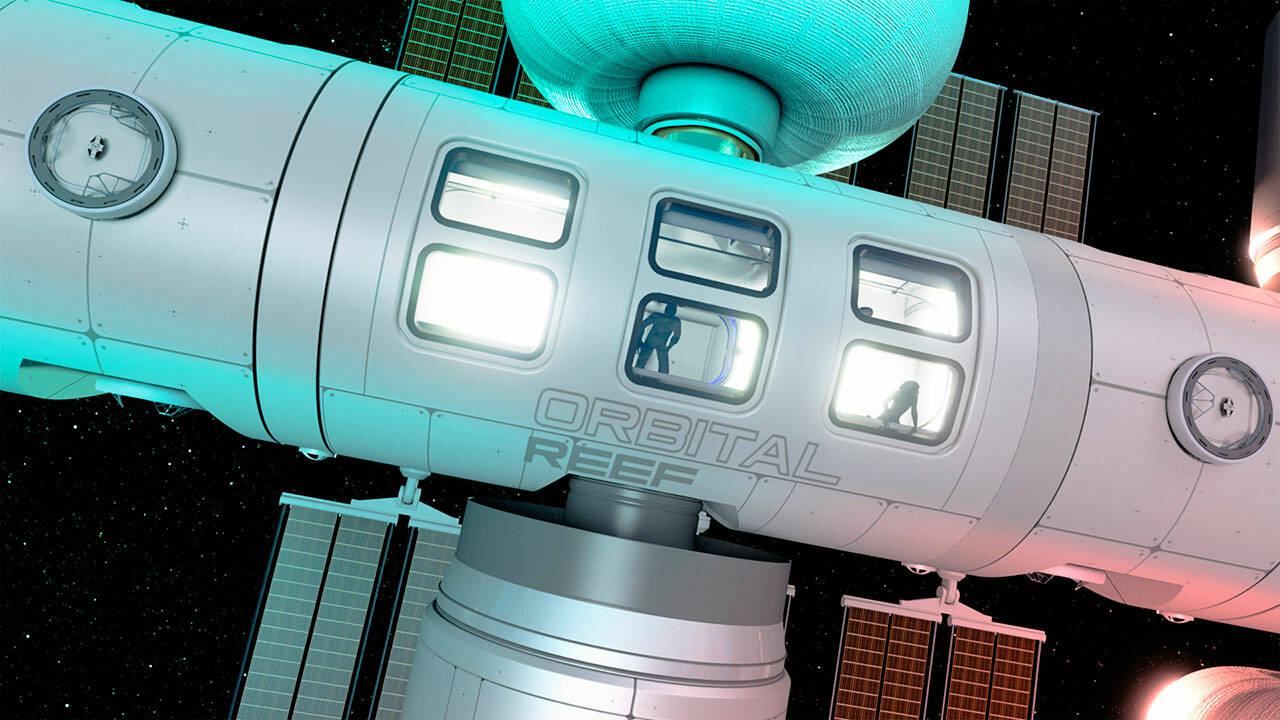Kent-based Blue Origin and Colorado-based Sierra Space today announced plans Monday, Oct. 25 for Orbital Reef, a commercially developed, owned and operated space station to be built in low Earth orbit.
The station will open the next chapter of human space exploration and development by facilitating the growth of a vibrant ecosystem and business model for the future, according to a Blue Origin email. Orbital Reef is backed by space industry leaders and teammates including Boeing, Redwire Space, Genesis Engineering Solutions and Arizona State University.
Designed to open multiple new markets in space, Orbital Reef will provide anyone with the opportunity to establish their own address on orbit, according to Blue Origin. This unique destination will offer research, industrial, international, and commercial customers the cost competitive end-to-end services they need including space transportation and logistics, space habitation, equipment accommodation, and operations including onboard crew. The station will start operating in the second half of this decade.
“For over sixty years, NASA and other space agencies have developed orbital space flight and space habitation, setting us up for commercial business to take off in this decade,” said Brent Sherwood, senior vice president of Advanced Development Programs for Blue Origin. “We will expand access, lower the cost, and provide all the services and amenities needed to normalize space flight. A vibrant business ecosystem will grow in low Earth orbit, generating new discoveries, new products, new entertainments, and global awareness.”
Orbital Reef will be operated as a “mixed use business park” in space. Shared infrastructure efficiently supports the proprietary needs of diverse tenants and visitors. It features a human-centered space architecture with world-class services and amenities that is inspiring, practical and safe, according to Blue Origin. As the premier commercial destination in low Earth orbit, Orbital Reef will provide the essential infrastructure needed to scale economic activity and open new markets in space.
Reusable space transportation and smart design, accompanied by advanced automation and logistics, will minimize cost and complexity for both traditional space operators and new arrivals, allowing the widest range of users to pursue their goals. The open system architecture allows any customer or nation to link up and scale to support demand. Module berths, vehicle ports, utilities, and amenities all increase as the market grows.
The Orbital Reef team of experts brings proven capabilities and new visions to provide key elements and services, including unique experience from building and operating the International Space Station:
• Blue Origin – Utility systems, large-diameter core modules, and reusable heavy-lift New Glenn launch system.
• Sierra Space – Large Integrated Flexible Environment (LIFE) module, node module, and runway-landing Dream Chaser spaceplane for crew and cargo transportation, capable of landing on runways worldwide.
• Boeing – Science module, station operations, maintenance engineering, and Starliner crew spacecraft.
• Redwire Space – Microgravity research, development, and manufacturing; payload operations and deployable structures.
• Genesis Engineering Solutions – Single Person Spacecraft for routine operations and tourist excursions.
• Arizona State University – Leads a global consortium of universities providing research advisory services and public outreach.
“Sierra Space is thrilled to partner with Blue Origin and provide the Dream Chaser spaceplane, the LIFE module and additional space technologies to open up space for commercial research, manufacturing, and tourism,” said Janet Kavandi, former three time NASA astronaut and Sierra Space president. “As a former NASA astronaut, I’ve been waiting for the moment where working and living in space is accessible to more people worldwide, and that moment has arrived.”
Talk to us
Please share your story tips by emailing editor@kentreporter.com.
To share your opinion for publication, submit a letter through our website https://www.kentreporter.com/submit-letter/. Include your name, address and daytime phone number. (We’ll only publish your name and hometown.) Please keep letters to 300 words or less.

